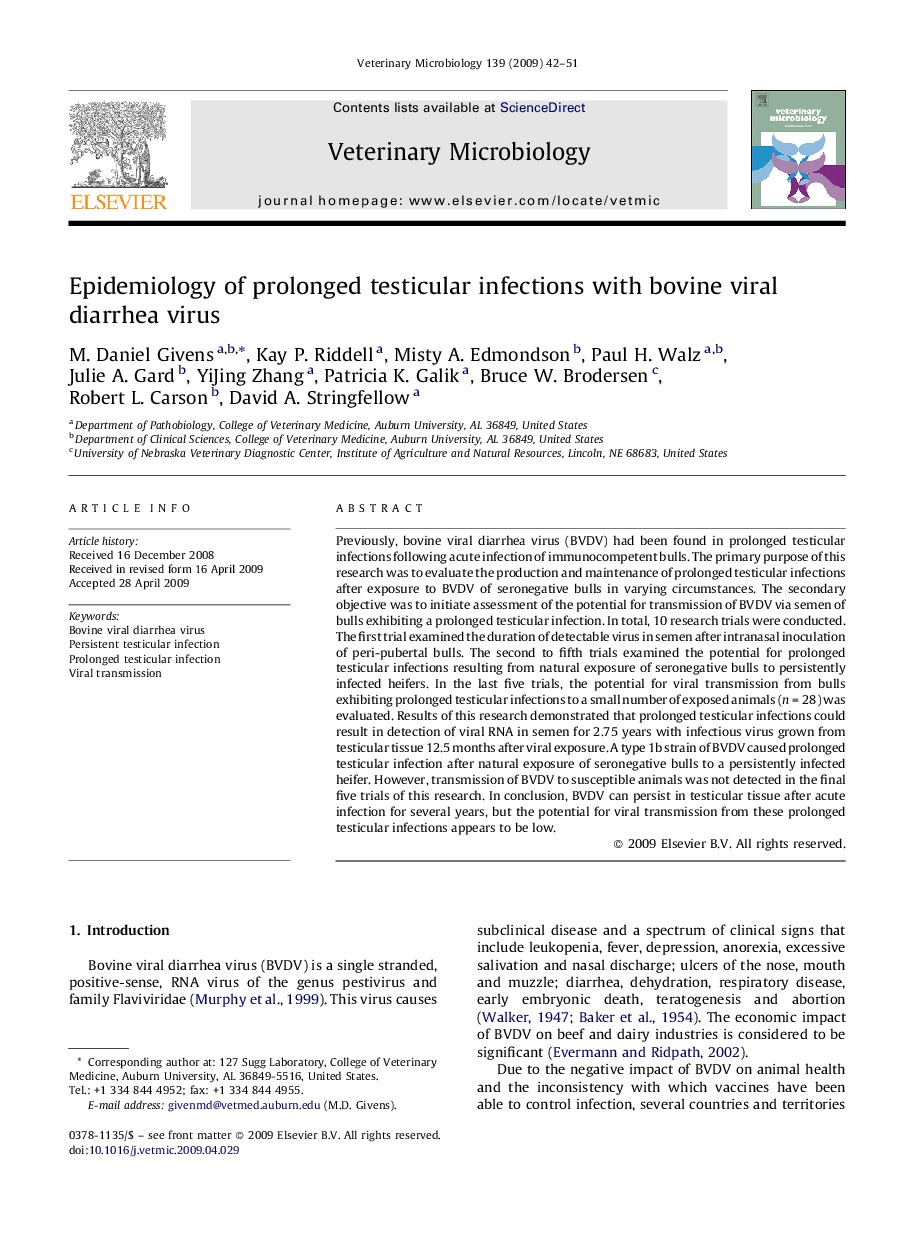| Article ID | Journal | Published Year | Pages | File Type |
|---|---|---|---|---|
| 2468219 | Veterinary Microbiology | 2009 | 10 Pages |
Previously, bovine viral diarrhea virus (BVDV) had been found in prolonged testicular infections following acute infection of immunocompetent bulls. The primary purpose of this research was to evaluate the production and maintenance of prolonged testicular infections after exposure to BVDV of seronegative bulls in varying circumstances. The secondary objective was to initiate assessment of the potential for transmission of BVDV via semen of bulls exhibiting a prolonged testicular infection. In total, 10 research trials were conducted. The first trial examined the duration of detectable virus in semen after intranasal inoculation of peri-pubertal bulls. The second to fifth trials examined the potential for prolonged testicular infections resulting from natural exposure of seronegative bulls to persistently infected heifers. In the last five trials, the potential for viral transmission from bulls exhibiting prolonged testicular infections to a small number of exposed animals (n = 28) was evaluated. Results of this research demonstrated that prolonged testicular infections could result in detection of viral RNA in semen for 2.75 years with infectious virus grown from testicular tissue 12.5 months after viral exposure. A type 1b strain of BVDV caused prolonged testicular infection after natural exposure of seronegative bulls to a persistently infected heifer. However, transmission of BVDV to susceptible animals was not detected in the final five trials of this research. In conclusion, BVDV can persist in testicular tissue after acute infection for several years, but the potential for viral transmission from these prolonged testicular infections appears to be low.
